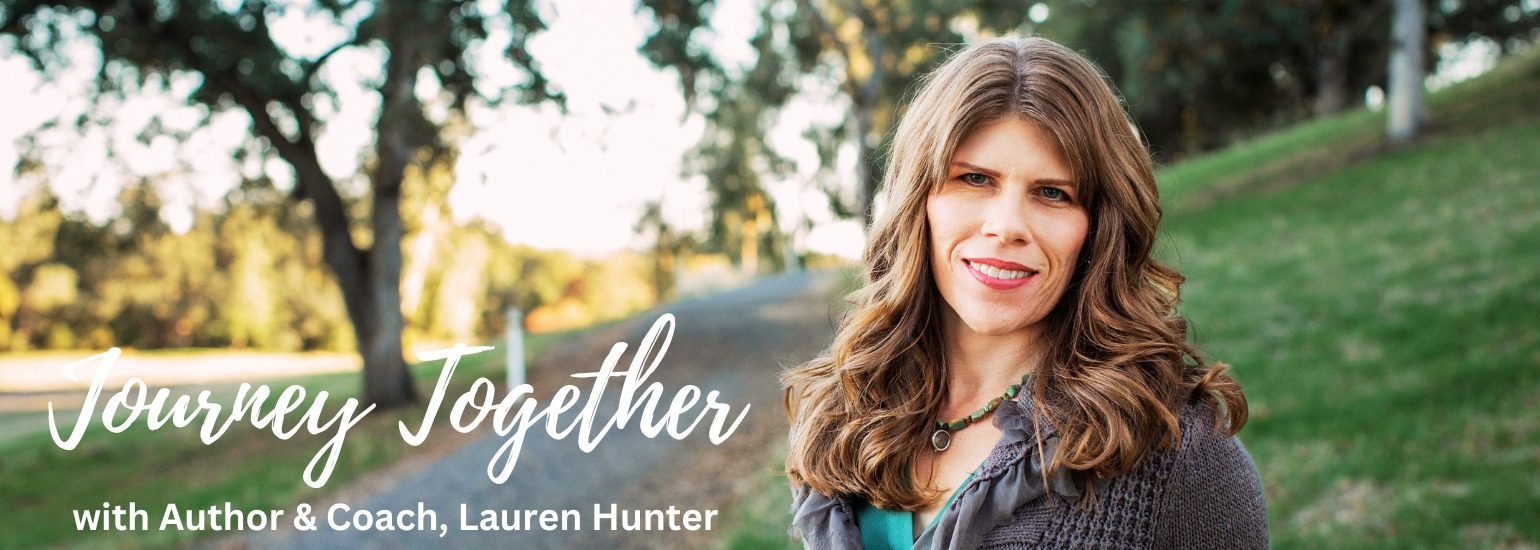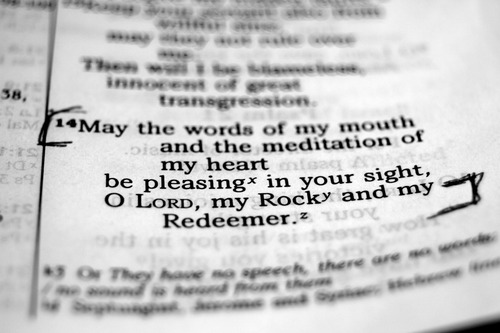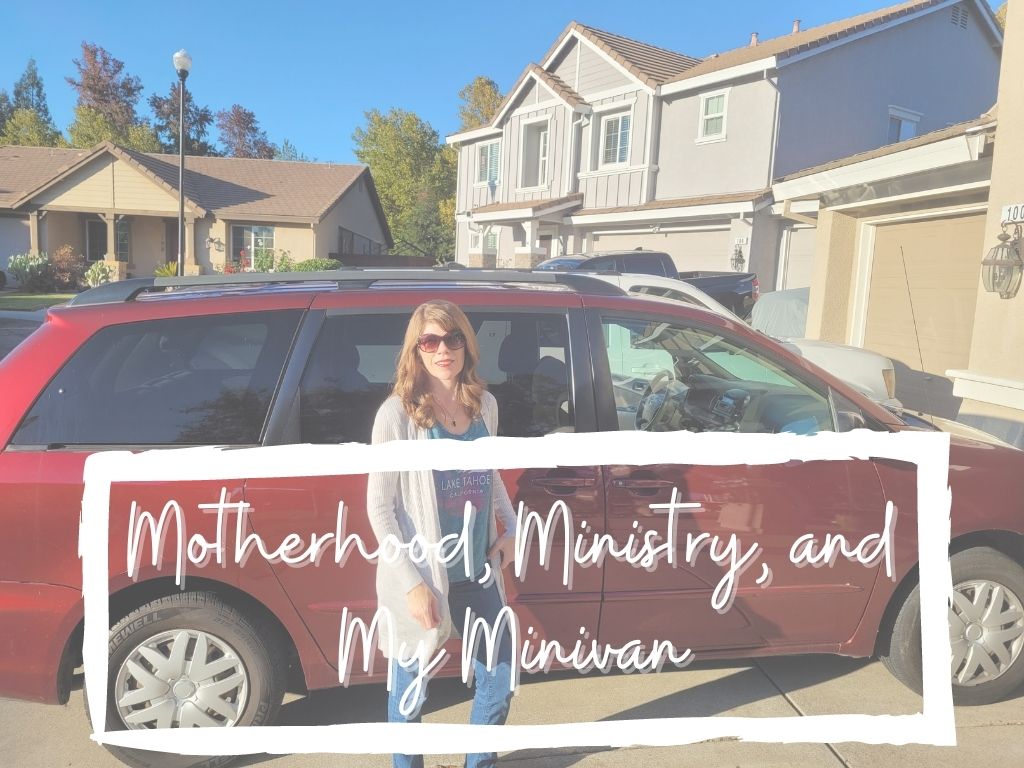When I became a Christian over twenty years ago, I wanted to know the best ways to fully engage with my new faith and become a devoted follower of Christ. While I grew up in Christian Science and attended church with my family regularly, I didn’t really understand that Christianity hinged on the death and resurrection of Jesus Christ as my personal savior. As I fully devoted myself to him, I wanted to be a good Christian but wasn’t sure what I needed to do. I was looking for ‘checklist Christianity’—a rubric for how and what to do as a new Christian.
My husband and I began attending a church in our town, and they encouraged new believers to start by joining a Bible study. Being a lover of learning, I signed up for my first Bible study. I enjoyed the small group conversations, the authenticity of those attending, and the sincerity of the other participants in answering my questions as I openly asked about the basics of Christianity. (One member of that small group was a former Christian Scientist himself and understood where I was coming from as I asked many questions.)
Am I doing Christianity the ‘right’ way?
Attending church on Sunday and going to Bible study mid-week was great, but I craved more direction, more instruction, and more lists to ensure I was “doing it right.” (This is often the case for those who leave high-control groups where there is a regimented strategy for approaching one’s religious practice.)
Some of the questions I asked myself were:
- Now that I’m a Christian, what am I allowed to watch on TV?
- Now that I’m a Christian, how should we raise our kids? (We didn’t have kids yet, but I was asking this question in advance.)
- Now that I’m a Christian, how much time should I volunteer?
- Now that I’m a Christian, how much money should I give?
As the years went on, I studied the Bible intently searching for detailed instructions in the Bible to guide our family.
I also looked at other Christian women around me and saw that they took exceptional care of their homes, often homeschooled their kids, respected and loved their husbands, prioritized their children and families, were generous, open-hearted, and served the church in lots of different ways.
Proverbs 31 came to mind, as it seemed as close to an instruction manual for the Christian women’s life that I could find:
“Her children rise up and call her blessed;
her husband also, and he praises her:
‘Many women have done excellently,
but you surpass them all.’”
And so, checklist Christianity set root in my heart despite my sincere faith. This ‘checklist Christianity’ approach to one’s faith has a tendency towards rules and lists. If many Christians declare something off-limits, you strike it out (I’m thinking Harry Potter or SpongeBob). If the Church says you need to tithe from pre-tax dollars, that’s what you do.
I dug into being a more devoted wife to my husband, as best I could. We had our first child the following year and I fully embraced motherhood (while juggling my public relations consulting and writing career from home). We joined a small group for young couples, I volunteered more at church in worship ministry, participated and volunteered with MOPS and women’s ministry, and the list only grew from there.
Should Christians volunteer and give?
Volunteering and giving to the Church should come out of an abundance of love for God, not out of a sense of duty. For me, they were intertwined. I didn’t think I could love God without serving in tangible ways. I wanted to live out my faith as best I could.
Most churches urge people to get connected by serving because it’s true: when you get involved in helping with children’s ministry or other departments of the church, you usually come away with a feeling of joy because you’ve helped others and God has used your gifts. But over-volunteering at the expense of your health or sanity is never good. I struggled with this because I wanted to be a good Christian, and I was good at making lists and checking boxes. I was measuring myself against a perfect Christian woman’s list of tasks:
- Perfectly cleaned home
- Tidy children
- Daily Bible reading
- Small group participation
- Lots of volunteering
- Treat my husband with respect
- Make casseroles for new mothers
- Avoid overly committing to work outside the home
You get the idea.
I was missing one of the finer nuances of the Christian faith: God offers us a completely free gift of salvation through his son, Jesus Christ. If we did nothing but receive his forgiveness, we have done enough.
As with most things, learning this has been a journey. And we’re on this journey together, aren’t we?
Less Time to Serve
As my family grew from one to four children, I quickly began to experience my limitations up close and personal. My husband had a demanding schedule, and I was the sole caregiver for the majority of the days. By baby number four, I realized I had to step back.
I adopted a new mantra: what will conserve my energy the most and allow me not to run myself into the ground?
I stepped back from worship leading for a season. I pulled away from extra commitments to volunteer on the women’s ministry committee. I said ‘no’ more than I said ‘yes’ because I had to. I just didn’t have the bandwidth I used to have.
Perfectly cleaned home- Tidy children
- Daily Bible reading
Small group participationLots of volunteering- Treat my husband with respect
Make casseroles for new mothers- Avoid overly committing to work outside the home
Some things started dropping off my checklist.
Looking back, I felt that God used this time to reduce me down to one thing: his beloved child. It’s crazy, really, because this one thing is perhaps the most important piece to understand as we pursue growth in our faith.
A new list started forming…
- Authentic prayer
- Sitting in the presence of God
- Worshipping alone through music
- Being more present with my kids
God doesn’t look at me with a checklist in hand, surveying everything that he expects and requires. You might have had a human parent treat you this way as a child, so it’s understandable that you might think God behaves the same way. BUT HE DOESN’T.
In fact, in growing closer to Jesus, I saw that attending to my young children was just as vital, if not more so, than all the volunteering I had been doing outside the house.
“We love because he first loved us.”
I John 4:19
God chooses us, gifts us with faith, and calls us his own. We don’t have to do anything to earn his love and forgiveness.
It’s a crazy paradox.
We continue to mess up; God continues to love us.
We strive and work under a self-imposed task master that says we have to do more to earn God’s love. Yet, God continues to love us and shepherd us, reminding us ever-so-gently that he doesn’t require all that we place upon ourselves.
I Called ‘Checklist Christianity’ Quits
In reflecting on the season of over-serving while growing our family, I slowly warmed to the idea of calling ‘checklist Christianity’ quits. A part of me thought that to be a good Christian, I had to do it all, and do it to the best of my abilities. As my energies waned, I grew skeptical that I keep up the pace. I knew there had to be another way.
During the Covid pandemic when suddenly all activities, groups, volunteer opportunities, church services, and team sports were canceled, I heard from God again. He whispered, “Am I enough for you?
At first, I was relieved to have downtime and a pause from the frenetic pace of things, but this led to feeling devoid of ways to serve well. With no church services, no worship leading, and no volunteer opportunities, I felt like a boat without a rudder. I simply couldn’t check the usual things off the list.
Maybe you can relate. It made me reevaluate my motives and take a closer look at why I was flailing about.
I came to realize that even with the best of intentions, I still forget and take back the yoke of striving. I crave accolades for hard work; I need fulfillment from the outside world which says, “you are what you do,” and “you are how much money you make.”
It’s a crazy thing to buck the cultural trend and declare that “I am enough with Jesus in my heart.”
“I am enough because God sent his only son for me.”
Covid brought this lesson home front and center.
What is the most important rule in Christianity?
Why do Christians frequently get tripped up on the external signs that we’re a believer, that we are sold out for Jesus? We crave a list of “to-dos” that will grant us internal peace because we’ve achieved a checklist for God. But the Bible tells us that what matters most is the condition of our hearts and how we love.
At the end of the day, perhaps the most important rule is from Jesus’ own words about the greatest commandment:
“’Teacher, which is the great commandment in the Law?’ And he said to him, ‘You shall love the Lord your God with all your heart and with all your soul and with all your mind.’” Matt. 22:36-37
I’m grateful that instead of arming me with a list, God leaves this up to interpretation and direction through a relationship with him. In the end, focusing more on being present with God and with others is in fact harder than the usual items that used to be on my list.






